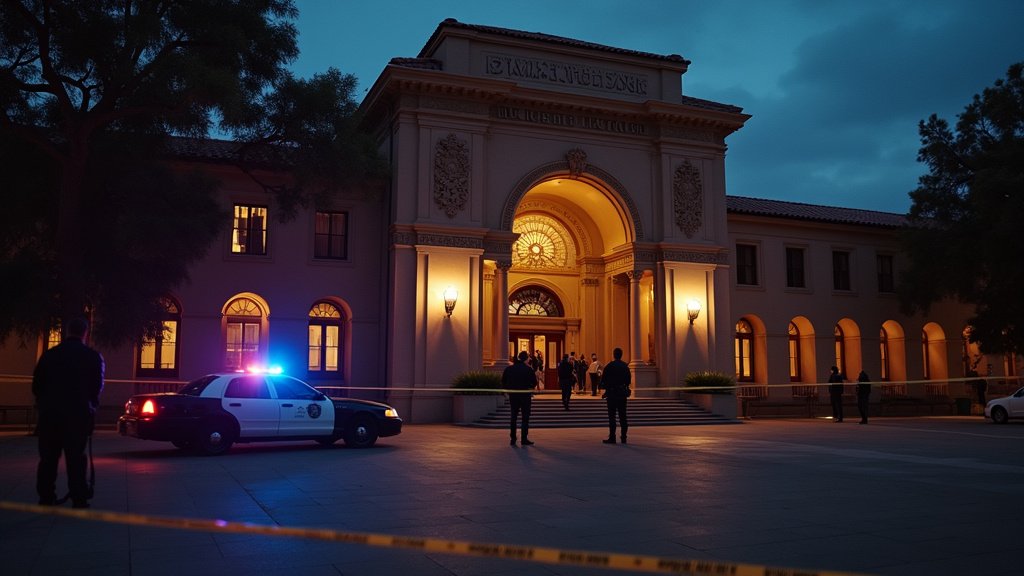In the bustling, diverse landscape of Los Angeles, a unique form of journalism has emerged, chronicling the often-harsh realities of immigration enforcement through the eyes of a former landscaper. Memo Torres, working anonymously behind the lens and narration for the online publication L.A. Taco, has created the “Daily Memo” video series, an indispensable record of immigration enforcement actions across the region. This deeply personal project, a vital Deportation Diary, has not only brought vital, ground-level news to the public but has also earned national recognition, including a finalist nomination for the prestigious 2025 Pulitzer Prize in Commentary.
From Lawns to Law Enforcement: A New Chapter in the Deportation Diary
Torres’s journey into documenting deportation raids is an unexpected one. For years, he operated a landscaping business, a profession that allowed him to traverse the diverse neighborhoods of Los Angeles. However, the escalating immigration crackdown, which he describes as a “deportation deluge,” profoundly impacted his work and personal life. The Hollywood writer’s strike and increased deportations decimated his business, forcing him to sell it. Simultaneously, personal relationships frayed, including the dissolution of a 10-year engagement due to his fiancée’s family’s support for former President Trump. This convergence of professional upheaval and personal loss provided a stark backdrop for his decision to pivot to journalism full-time, becoming L.A. Taco’s director of engagement, and beginning his impactful Deportation Diary.
The “Daily Memo” Chronicle: A Deportation Diary Unveiled
The “Daily Memo” series, typically three minutes long, meticulously captures immigration enforcement actions. Torres and his colleagues at L.A. Taco gather film footage and photographs, cross-referencing them with official sources to verify the details of each incident. Torres then narrates these events, providing a voice to the often-overlooked narratives of those affected by Immigration and Customs Enforcement (ICE) and Border Patrol operations. These deportation stories frequently depict the detention of gardeners, elderly men, and families, accompanied by Torres’s somber yet vigilant commentary, urging viewers to “stay safe and stay vigilant.” This critical work forms the core of his Deportation Diary.
L.A. Taco’s Shift to Essential News: Documenting Immigration Raids LA
L.A. Taco, initially a popular publication known for its coverage of food and local culture, has transformed into a critical news source for immigration news in Los Angeles. Editor-in-chief Javier Cabral noted the publication’s evolution from covering “tacos and weed” to becoming a consistent reporter of ICE raids and the ensuing protests. This shift was a natural progression for a newsroom deeply embedded in the communities most affected by these policies. Their commitment to “service journalism” and rapid dissemination of information has made them indispensable, particularly during periods of intense enforcement activity. The publication’s deep roots and trusted relationships within immigrant communities allow them to access stories and perspectives that larger media outlets often miss, fostering a sense of community trust and support, and informing the ongoing Deportation Diary project. This focus on immigration raids LA has been a defining characteristic.
National Acclaim Amidst Personal and Professional Challenges: A Journalist’s Deportation Diary
The profound impact of Torres’s work has not gone unnoticed. His “Daily Memo” series has been lauded as a historical document, capturing a “terrifying chapter in the region’s history”. The recognition includes being a finalist for the 2025 Mike Royko Award for Commentary and Column Writing, alongside his Pulitzer Prize nomination in Commentary. Furthermore, L.A. Taco was part of a team that secured the 2025 Pulitzer Prize in Breaking News. This acclaim stands in contrast to Torres’s personal struggles, including facing bankruptcy and the emotional toll of constantly witnessing and reporting on traumatic events. The intensity of the raids, which he notes have escalated from a week’s worth of abductions to a daily occurrence, weighs heavily on him, leading him to admit, “If I wanted to cry, I don’t think that I could.” As a Memo Torres journalist, his dedication to this Deportation Diary is evident.
A Vital Narrative for Los Angeles: The Deportation Diary’s Significance
Memo Torres’s “Daily Memo” series represents more than just news reporting; it is a powerful “deportation diary” for a city that, in many ways, never wanted to confront this reality so directly. His transition from landscaper to journalist underscores a commitment to bearing witness and making the invisible visible. Through L.A. Taco’s in-depth LA Taco reporting, his work not only informs but also amplifies the voices of those navigating the complexities of immigration in Los Angeles, solidifying his role as a crucial chronicler of contemporary American news and challenges.





